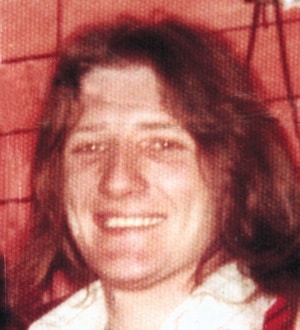On May 5, 1981, imprisoned Irish Catholic militant Bobby Sands dies after refusing food for 66 days in protest of his treatment as a criminal rather than a political prisoner by British authorities.
His death immediately kicked-off widespread rioting in Belfast, as young Irish-Catholic militants clashed with police and British Army patrols and started fires.

After independence, according to the IRA, Northern Ireland would be united with the Republic of Ireland in a socialist Irish republic. In 1972, Sands was arrested and convicted of taking part in several IRA robberies. Because he was convicted for IRA activities, he was given “special category status” and sent to a prison that was more akin to a prisoner of war camp because it allowed freedom of dress and freedom of movement within the prison grounds. He spent four years there.
After less than a year back on the streets, Sands was arrested in 1977 for gun possession near the scene of an IRA bombing and sentenced to 14 years in prison. Because the British government had enacted a policy of “criminalization” of Irish terrorists in 1976, Sands was imprisoned as a dangerous criminal in the Maze Prison south of Belfast. During the next few years, from his cell in the Maze, he joined other imprisoned IRA terrorists in protests demanding restoration of the freedoms they had previously enjoyed under special category status.
In 1980, a hunger strike lasted 53 days before it was called off when one of the protesters fell into a coma. In response, the British government offered a few concessions to the prisoners, but they failed to deliver all they had promised and protests resumed. Sands did not take a direct part in the 1980 strike, but he acted as the IRA-appointed leader and spokesperson of the protesting prisoners.
On March 1, 1981 (the fifth anniversary of the British policy of criminalization) Bobby Sands launched a new hunger strike.
He took only water and salt, and his weight dropped from 70 to 40 kilos. After two weeks, another protester joined the strike, and six days after that, two more.
On April 9, in the midst of the strike, Sands was elected to a vacant seat in the British Parliament from Fermanagh and South Tyrone in Northern Ireland. Parliament subsequently introduced legislation to disqualify convicts serving prison sentences for eligibility for Parliament. His election and fears of violence after his death drew international attention to Sands’ protest.
In the final week of his life, Pope John Paul II sent a personal envoy to urge Sands to give up the strike. He refused. On May 3, he fell into a coma, and in the early morning of May 5 he died. Fighting raged for days in Belfast, and tens of thousands attended his funeral on May 7.
After Sands’ death, the hunger strike continued, and nine more men perished before it was called off on October 3, 1981, under pressure from Catholic Church leaders and the prisoners’ families. In the aftermath of the strike, the administration of British Prime Minister Margaret Thatcher agreed to give in to several of the protesters’ demands, including the right to wear civilian clothing and the right to receive mail and visits. Prisoners were also allowed to move more freely and no longer were subject to harsh penalties for refusing prison work.
Official recognition of their political status, however, was not granted.

